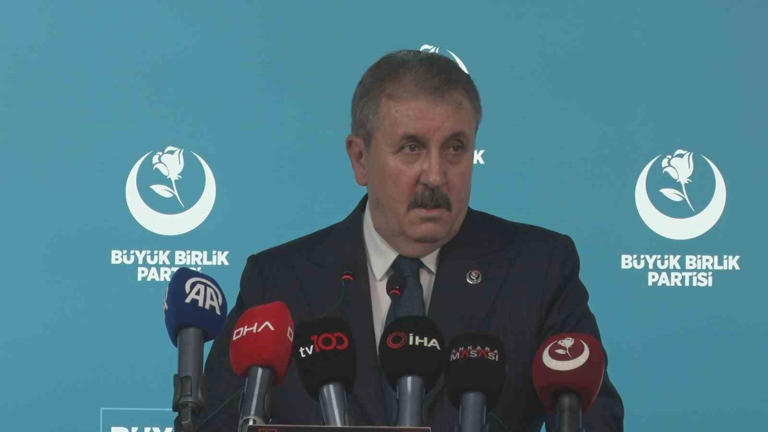Turkistan Times, 13 September 2025, Ankara - Mustafa Destici, Chairman of the Great Unity Party (BBP), addressed the press at the party headquarters ahead of the Central Decision and Executive Board (MKYK) meeting, drawing attention to both the situation in East Turkistan and Turkey’s trade deficit with China.
Speaking on ongoing humanitarian crises, Destici stressed the need for an end to the massacres in Palestine, while also highlighting the plight of the Uyghur population. He stated, “Until 1949, there was an East Turkistan Republic. It was occupied by Red China, and since then, the Turkic population of East Turkistan has lived under occupation, oppression, and genocide.” Emphasizing his party’s unwavering position, he added, “Regardless of what anyone says, we support the end of oppression, genocide, and occupation in East Turkistan and the establishment of an independent Turkistan. As the Great Unity Party, we will never compromise on this belief.”
Destici also drew attention to economic issues. On the social media platform X, he noted that Turkiye’s current account deficit is largely driven by its trade imbalance with China. While he cited a figure of 60 billion dollars, official data confirm that Turkey indeed faces a significant trade deficit with China.
According to data released by the Turkish Ministry of Foreign Affairs, the trade volume between Türkiye and China reached $48.3 billion in 2024, of which $44.9 billion was imports and only $3.4 billion was exports, resulting in a $41.5 billion trade deficit. This pattern has remained consistent over the past three years: $38.2 billion in 2022, $41.7 billion in 2023, and $41.5 billion in 2024.
Türkiye’s main exports to China include marble and travertine, various precious metal ores and concentrates, lead, chromium, copper, iron, zinc, and borate products, while imports from China are dominated by mobile phones, computers and processing units, audiovisual and electronic equipment, compressors, and converters. These figures underline a structural imbalance in bilateral trade.
Destici’s statements bring the East Turkistan issue back into Türkiye’s public discourse while simultaneously highlighting the challenges in Ankara’s economic relations with Beijing. His emphasis on both human rights and economic sovereignty is likely to continue shaping political debates in the coming weeks.

